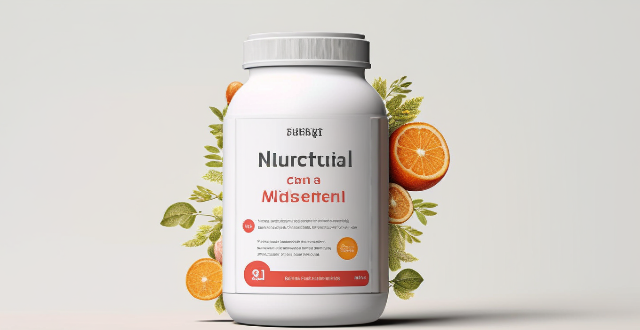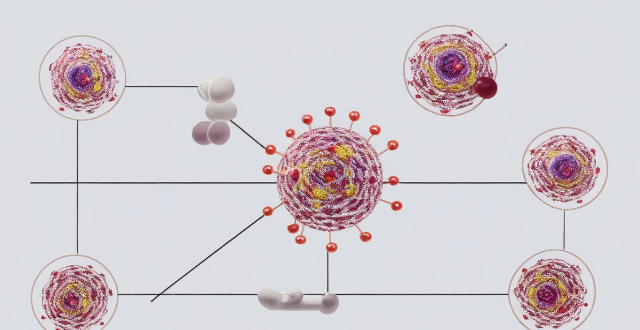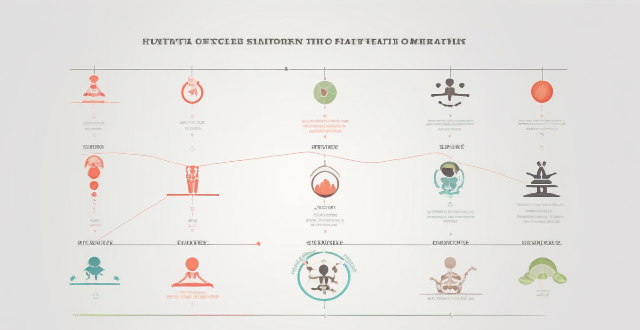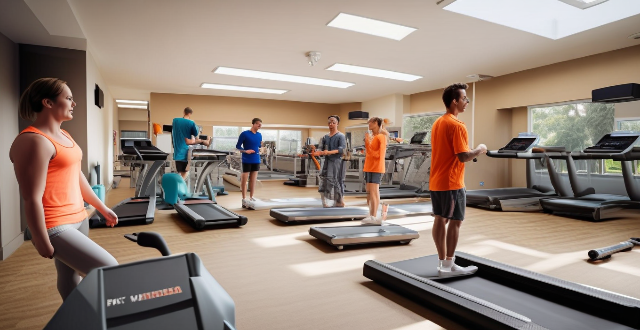Muscle Goal

What should I eat after a workout to build muscle
After a workout, it is important to provide the body with nutrients for muscle repair and growth. Protein-rich foods like chicken breast and Greek yogurt are essential for muscle growth. Complex carbohydrates like sweet potatoes provide sustained energy. Healthy fats from sources such as avocados and nuts help absorb vitamins. Staying hydrated with water is crucial for muscle function. A balanced diet with fruits, vegetables, and fiber supports long-term muscle health.

What are the best exercises for building muscle at the gym ?
The article discusses the best exercises for building muscle at the gym, including free weights, machines, and bodyweight exercises. Free weight exercises like squats, deadlifts, and bench press target multiple major muscle groups for overall strength and muscle growth. Machine exercises such as leg press, lat pulldown, and seated row allow for isolation of specific muscles while still allowing heavy lifting. Bodyweight exercises including push-ups, pull-ups, and squat jumps require no equipment and can be done anywhere for convenient muscle building.

How do I prevent muscle soreness after a long run ?
To prevent muscle soreness after a long run, you should warm up properly, stretch your muscles, drink plenty of water, eat a balanced diet, and rest between workouts. Following these tips can help reduce the risk of injury and improve performance in future runs.

Can stretching after exercise prevent muscle soreness ?
Stretching after exercise can help reduce muscle soreness and improve flexibility, but it is important to wait for enough time, choose appropriate stretches, be mindful of pain, and use proper technique.

Can sports supplements help with muscle recovery after workouts ?
Can Sports Supplements Help with Muscle Recovery After Workouts? Physical exercise and workouts are essential for maintaining a healthy lifestyle, but they can also lead to muscle fatigue and soreness. Many athletes and fitness enthusiasts turn to sports supplements to aid in muscle recovery after workouts. But do these supplements really work? Let's explore the topic in detail. What are Sports Supplements? Sports supplements are dietary products designed to enhance athletic performance, improve physical health, and support recovery from exercise. They come in various forms, including powders, pills, and liquids, and can be consumed before, during, or after workouts. Types of Sports Supplements - Protein Powders: Help in muscle repair and growth. - Creatine: Boosts energy production in muscles. - Branched-Chain Amino Acids (BCAAs): Support muscle building and recovery. - Glutamine: Aids in muscle recovery and immune function. - Omega-3 Fatty Acids: Reduce inflammation and promote heart health. - Multivitamins/Minerals: Support overall health and wellness. How Do Sports Supplements Help with Muscle Recovery? - Protein Powders: Consuming protein powders after a workout can help replenish depleted amino acids, leading to faster recovery times. - Creatine: Increases the availability of phosphocreatine, which helps regenerate ATP more quickly during high-intensity exercises, reducing muscle fatigue and aiding in recovery. - BCAAs: Consuming BCAA supplements before or during workouts can reduce muscle damage and speed up recovery processes. - Glutamine: Supports muscle recovery by helping maintain cellular volume and preventing muscle breakdown. It also supports immune function, which is important for overall health and recovery. - Omega-3 Fatty Acids: Have anti-inflammatory properties that can help reduce muscle soreness and stiffness after workouts. They also support heart health, which is crucial for athletes who engage in cardiovascular exercises. - Multivitamins/Minerals: While not directly related to muscle recovery, consuming multivitamins or minerals can support overall health and wellness, which indirectly aids in recovery processes. Are Sports Supplements Safe? While sports supplements can be beneficial for some individuals, it's important to note that they are not regulated by the Food and Drug Administration (FDA). This means that their safety and effectiveness may vary between brands and products. It's always best to consult with a healthcare professional before starting any supplement regimen. Additionally, relying solely on supplements without proper nutrition and rest can be counterproductive. A balanced diet, adequate sleep, and proper hydration are still key components of effective muscle recovery.

Can dehydration really cause muscle cramps during physical activity ?
Dehydration can lead to muscle cramps during physical activity due to loss of essential electrolytes and reduced oxygen supply to muscles. Signs of dehydration include thirst, dark urine, fatigue, dizziness, dry mouth, headache, and constipation. To prevent dehydration and muscle cramps, stay hydrated, eat a balanced diet rich in electrolytes, stretch before and after exercise, gradually increase intensity, and rest when needed.

How does sleep deprivation affect muscle recovery after workouts ?
Sleep is crucial for muscle recovery after workouts, as it allows the body to repair and rebuild damaged muscle tissue. Sleep deprivation reduces growth hormone production and protein synthesis, leading to inefficient muscle recovery. Strategies for improving sleep quality include establishing a consistent sleep schedule, creating a relaxing bedtime routine, avoiding screens before bed, getting plenty of exercise, and creating a comfortable sleeping environment. By prioritizing sleep, you can improve muscle recovery and overall health.

How can I prevent muscle soreness after a workout
Stretching, warm-up, hydration, nutrition, rest, massage, ice therapy, and avoiding overtraining are all important steps to help prevent muscle soreness after a workout.

What role does muscle strength training play in preventing chronic diseases ?
Muscle strength training can help prevent chronic diseases such as heart disease, stroke, type 2 diabetes, and some types of cancer. It also has many benefits for physical and mental health, including improved cardiovascular health, weight management, better bone health, reduced risk of type 2 diabetes, enhanced mental health, increased self-esteem, improved physical function, lowered blood pressure, and cancer prevention. To get started with muscle strength training, it is important to start low and slow, mix up your routine, rest enough, stay hydrated, eat right, and get enough sleep. With dedication and consistency, you can achieve great results!

How do sports nutrition supplements affect muscle recovery after a workout ?
Sports nutrition supplements can significantly support muscle recovery post-workout by providing essential nutrients. Protein supplements like whey and casein replenish amino acids, while carbohydrate supplements such as BCAAs and beta-alanine reduce soreness and fatigue. Other nutrients, including creatine, glutamine, and vitamins/minerals, further enhance recovery. A structured supplementation routine, tailored to individual needs, can optimize muscle recovery and athletic performance.

Is it necessary to stretch every muscle group after a workout ?
Stretching after a workout is often considered an essential part of any exercise routine. It helps in improving flexibility, reducing muscle soreness, and preventing injuries. However, the question remains: is it necessary to stretch every muscle group after a workout? Let's delve into this topic and explore the benefits and considerations associated with post-workout stretching.### Importance of Post-Workout Stretching Improved Flexibility Stretching after a workout can help maintain and improve flexibility over time. When muscles are warmed up from the exercise, they become more pliable, making it easier to stretch them. Regular stretching can lead to increased range of motion and better overall flexibility. Reduced Muscle Soreness Stretching can help reduce muscle soreness that may occur after a strenuous workout. By elongating the muscles, stretching promotes blood flow, which aids in the removal of lactic acid and other waste products that contribute to muscle soreness. Injury Prevention Stretching can also play a role in injury prevention. By increasing flexibility and range of motion, stretching can help reduce the risk of strains, sprains, and other injuries that may occur during physical activity.### Considerations for Post-Workout Stretching Not All Muscles Need to Be Stretched While stretching is generally beneficial, it's not necessary to stretch every muscle group after every workout. The focus should be on the muscles that were primarily engaged during the exercise session. For example, if you completed a lower body workout, it would be more beneficial to stretch your legs rather than your arms. Quality Over Quantity It's important to prioritize the quality of your stretches over the quantity. Performing a few well-executed stretches is more effective than rushing through multiple stretches without proper form or technique. Take the time to hold each stretch for at least 15-30 seconds, ensuring that you feel a gentle stretch without any pain or discomfort. Listen to Your Body Your body will provide clues about which muscles need stretching. If you experience tightness or stiffness in a particular muscle group, it's a good idea to focus on stretching those areas. Conversely, if a muscle group feels loose and relaxed, there may be no need to stretch it extensively.### Conclusion In conclusion, while stretching every muscle group after a workout is not strictly necessary, incorporating stretching into your post-workout routine can offer numerous benefits. By focusing on the muscles that were heavily engaged during your exercise session and prioritizing quality over quantity, you can improve flexibility, reduce muscle soreness, and potentially prevent injuries. Remember to listen to your body and adjust your stretching routine accordingly for optimal results.

How does exercise affect muscle growth and repair at a cellular level ?
Exercise stimulates protein production for muscle growth and repair, increases satellite cells for new muscle fibers, boosts blood flow for nutrient delivery and waste removal, and promotes the release of growth factors like IGF-1.

Is it possible to build muscle with office-friendly exercises ?
In today's fast-paced world, many people spend a significant portion of their day sitting at a desk. This sedentary lifestyle can lead to various health problems, including muscle loss. However, the good news is that it is possible to build muscle with office-friendly exercises. In this article, we discussed some effective exercises that can be done in an office setting, including bodyweight exercises like push-ups, squats, and lunges, as well as resistance band exercises like bicep curls, tricep dips, and shoulder press. By incorporating these exercises into your routine, you can improve your overall fitness and health while sitting at your desk all day.

What kind of foods should I eat to aid in muscle recovery
Eating a balanced diet that includes carbohydrates, protein, healthy fats, water, and vitamins and minerals is essential for muscle recovery after exercise. Complex carbohydrates provide energy for muscles during recovery, while protein helps repair and grow them. Healthy fats support overall health and reduce inflammation. Drinking enough water flushes out toxins and maintains a healthy fluid balance in the muscles. Vitamins and minerals, such as vitamin C, vitamin D, and iron, are also important for muscle function and recovery.

How do sports monitoring systems analyze muscle activity and fatigue ?
Sports monitoring systems analyze muscle activity and fatigue by employing various technologies and methodologies, including: 1. Electromyography (EMG) to measure electrical muscle activity and detect fatigue indicators. 2. Heart rate monitoring to track intensity, recovery, and heart rate variability (HRV). 3. Accelerometry to track motion patterns and assess fatigue through changes in movement quality. 4. Force plates and pressure mats for measuring ground reaction forces and load distribution. 5. Blood lactate testing as a metabolic indicator of anaerobic metabolism and fatigue. 6. Perception-based scales like Ratings of Perceived Exertion (RPE) for subjective feedback on exertion levels. 7. Sleep tracking to monitor sleep duration, quality, and rest disruptions. 8. Environmental monitoring to account for external conditions affecting performance and fatigue. These systems provide valuable insights into an athlete's performance, enabling coaches and athletes to adjust training regimens, prevent overtraining, and enhance overall sports performance.

Are there any specific training methods that celebrities use for muscle building and fat loss ?
Celebrities use a variety of training methods and nutrition plans to achieve their desired physique, including High-Intensity Interval Training (HIIT), weightlifting, cardiovascular exercise, Pilates and yoga, functional training, and strict nutrition plans. These methods are designed to burn fat, build muscle, improve flexibility and balance, and support overall fitness and mobility. However, individual results may vary depending on various factors.

How often should I do strength training ?
This article discusses the recommended frequency for strength training based on various factors such as your fitness level, goals, and schedule. It provides guidance for beginners, intermediate and advanced trainees, and those with specific goals like building muscle mass or losing weight. Sample workout schedules are also provided to help you plan your routine effectively. The article emphasizes the importance of proper form, progressive overload, and adequate recovery time for optimal results.

What are some common mistakes that women make when starting a new fitness plan ?
Starting a new fitness plan can be exciting and daunting at the same time. However, many women make some common mistakes that can hinder their progress and lead to frustration. Here are some of the most common mistakes: 1\. Setting Unrealistic Goals: One of the biggest mistakes women make when starting a new fitness plan is setting unrealistic goals. It's important to set achievable and realistic goals that align with your fitness level, lifestyle, and schedule. 2\. Overtraining: Another common mistake is overtraining. This can lead to fatigue, burnout, and even injury. It's essential to listen to your body and give it enough rest and recovery time between workouts. 3\. Neglecting Nutrition: Many women focus solely on exercise and neglect their nutrition. However, what you eat plays a crucial role in achieving your fitness goals. A balanced diet with adequate protein, healthy fats, and complex carbohydrates is essential for fueling your workouts and promoting muscle growth and recovery. 4\. Not Warming Up or Cooling Down: Skipping warm-up or cool-down exercises can increase the risk of injury and reduce the effectiveness of your workouts. A proper warm-up prepares your body for exercise by increasing blood flow and warming up your muscles, while a cool-down helps your body gradually return to its resting state. 5\. Relying Solely on Cardio: While cardio is an excellent way to burn calories and improve cardiovascular health, relying solely on it can lead to a plateau in weight loss and muscle tone. Incorporating strength training into your fitness plan can help build lean muscle mass, which boosts metabolism and leads to more efficient calorie burning. 6\. Ignoring Pain or Discomfort: Many women push through pain or discomfort during their workouts, thinking it's just part of the process. However, ignoring pain or discomfort can lead to serious injuries that set back your progress significantly. If something doesn't feel right, it's essential to stop and seek professional advice. 7\. Comparing Yourself to Others: Comparing yourself to others can be discouraging and demotivating. Everyone has different bodies, fitness levels, and goals, so it's essential to focus on your own progress rather than comparing yourself to others. Remember that everyone starts somewhere, and consistency and dedication are key to achieving your fitness goals.

Who are some of the top goal scorers in this year's football season ?
This year's football season has seen exceptional performances from players across the globe, with Erling Haaland, Lionel Messi, Karim Benzema, Cristiano Ronaldo, and Robert Lewandowski leading the pack as top goal scorers. These players have not only showcased their individual talents but also played a crucial role in their teams' successes throughout the season.

Does lifting weights help with weight loss ?
Weight loss is a common goal for many people, and weightlifting is one of the most popular methods. However, does lifting weights help with weight loss? This article explores the benefits and drawbacks of weightlifting as a means of weight loss. One of the main benefits of weightlifting is muscle growth, which can lead to an increase in metabolism and help with weight loss. In addition, weightlifting can also help with fat burning and improved cardiovascular health. However, there are also some potential drawbacks to weightlifting, including high initial costs, potential injuries, and a significant time commitment. If you are interested in trying weightlifting as a way to lose weight, make sure you do your research and find a program that fits your needs and lifestyle.

How long should my gym sessions be to maximize results ?
Maximizing Gym Sessions for Optimal Results: The duration of your gym sessions can significantly impact your results. To maximize your outcomes, consider factors such as your goals, fitness level, and schedule. Recommended durations vary based on goals: muscle building requires 60-90 minutes, weight loss benefits from 30-45 minutes of HIIT or circuit training, and cardiovascular health improves with 30-60 minutes of moderate-intensity workouts. Intensity matters, with shorter high-intensity workouts being more effective for fat loss and longer moderate-intensity sessions building endurance. Listen to your body and adjust accordingly, allowing for adequate rest and recovery days to prevent injury and promote muscle growth.

How can psychology improve an athlete's performance ?
The article discusses how psychology can improve an athlete's performance by addressing various psychological factors that can influence their mindset and behavior. The author provides a topic summary of the main points covered in the text, which includes goal setting, self-talk, stress management, confidence building, and team dynamics. Each section explains the objectives and benefits of each technique and how they can be applied to enhance an athlete's mental toughness, resilience, and winning mindset. The conclusion emphasizes the importance of incorporating psychology into an athlete's training regimen for overall well-being and enjoyment of sports.

What role does mental training play in improving sports skills ?
The text discusses the role of mental training in enhancing sports skills. It outlines key points including mental toughness, visualization techniques, goal setting, self-talk, and concentration skills. Mental toughness helps athletes handle pressure, recover from setbacks, and persist through challenges. Visualization techniques can program the subconscious, reduce anxiety, and increase motivation. Goal setting clarifies objectives, tracks progress, and maintains motivation. Positive self-talk boosts confidence, enhances performance, and regulates emotions. Concentration skills block distractions, maintain attention, and improve decision making. The conclusion states that mental training is an essential component of overall athletic success.

How does sports affect the physical development of adolescents ?
Sports during adolescence positively impact physical development by enhancing muscular strength, improving bone density, promoting coordination and balance, managing body composition, benefiting cardiovascular health, and fostering mental well-being. Additionally, they encourage active lifestyle habits and social interaction, setting a foundation for lifelong health and wellness.

How much protein do I need for muscle recovery ?
Protein is vital for muscle recovery, especially after intense workouts. Sedentary adults need 0.8g/kg, while athletes require more. Timing and quality of protein intake matter. Tips include dietary variety, supplementation if needed, meal planning, and monitoring intake.

What are the latest research findings in exercise physiology that can benefit amateur athletes ?
This text discusses the latest research findings in exercise physiology for amateur athletes, including the benefits of High-Intensity Interval Training (HIIT), recovery techniques, nutrition and hydration, and mental health strategies. Incorporating these findings can help amateur athletes improve their performance, prevent injuries, and achieve their fitness goals.

How often should I run to see improvements in my speed and endurance ?
To see improvements in your speed and endurance, you should run 2-3 days per week of high-intensity interval training (HIIT) or sprint workouts if your goal is speed, 3-4 days per week of moderate-intensity runs lasting 30-60 minutes if your goal is endurance, or a combination of both if your goal is both speed and endurance. It's crucial to listen to your body, be consistent, and track your progress to achieve your running goals.

What role does genetics play in determining an individual's potential for elite sports performance ?
Genetics plays a significant role in determining an individual's potential for elite sports performance. Physical attributes, physiological characteristics, and psychological traits all contribute to success in sports. Height and body build, muscle composition and fiber type, oxygen uptake and energy production, recovery and injury resistance, motivation and mental toughness, and cognitive abilities are all influenced by genetics. However, environmental factors such as training, nutrition, and coaching also play a crucial role in an athlete's development and success.